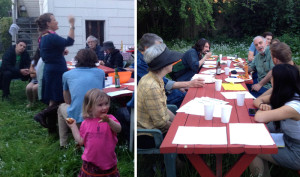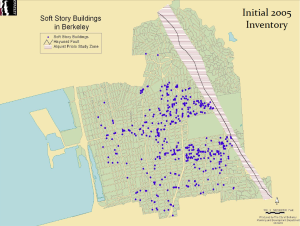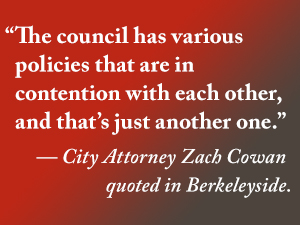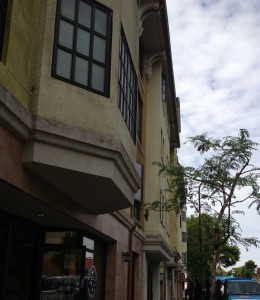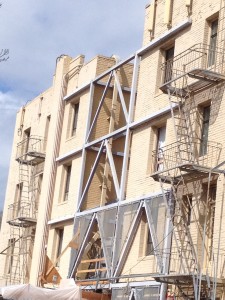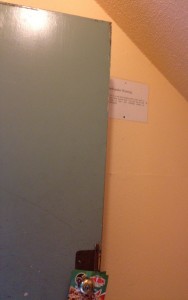Demolition Ordinance to Housing Commission Thursday
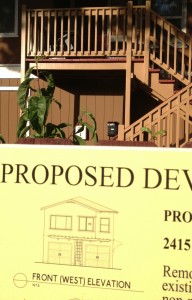 Berkeley’s Housing Advisory Commission (HAC) will consider several hot issues at their meeting on Thursday September 12, including mandatory retrofits of seismically unsafe apartment buildings and alarming changes to the demolition ordinance which would threaten rent control and lead to evictions.
Berkeley’s Housing Advisory Commission (HAC) will consider several hot issues at their meeting on Thursday September 12, including mandatory retrofits of seismically unsafe apartment buildings and alarming changes to the demolition ordinance which would threaten rent control and lead to evictions.
The HAC will also hear an update about the exciting new program that offers energy efficient upgrades to tenants and landlords, a proposed ordinance declaring mold unhealthy in rental units, and changes to the affordable housing fees developers of new buildings must pay to offset the impact of unaffordable units on the community.
TENANTS, Come Out and Have Your Say!
South Berkeley Senior Center, 2939 Ellis Street, at 7 PM Thursday
Demolition Ordinance
The Berkeley NAACP joined with other organizations like BTU and the Sierra Club in opposing new drafts of the Demolition Ordinance which don’t require rent controlled apartments be replaced with units affordable to low-income residents.
The Berkeley NAACP top priority recommendation in the Housing category for the report from their summer Town Hall meeting was, “Demolition Ordinance will include the replacement of all affordable housing that is demolished.” Unfortunately, there is a new draft of the demo ordinance that came out on August 30 which would allow developers to tear down rent controlled units, even those which are occupied or in good condition, and not replace them. The new draft allows developers to pay an unspecified fee which could be changed by City Council at any time.
BTU is standing by our request that Council approve the June 4th compromise draft, and we are still collecting signatures for our petition, which we will also present to the HAC.
https://www.change.org/petitions/berkeley-city-council-preserve-affordable-housing
NAACP Town Hall report: http://www.ci.berkeley.ca.us/uploadedFiles/Planning_and_Development/Level_3_-_LPC/Item%2012.A.2_NAACP%20Corrospondance.pdf
Seismic Retrofits
BTU is determined that tenants should not be forced to pay a rent increase just because their building will stand up for 3-5 more seconds in a major earthquake.
Mold
Right now, Berkeley Housing Code Enforcement can’t cite for mold in apartment buildings because even severe mold, which causes asthma and other health problems, is not defined in our city codes as a hazard. This new law is based on one that has protected San Francisco tenants for years.
If you can’t come to the Housing Commission meeting Thursday, write to them care of kslee@cityofberkeley.info

